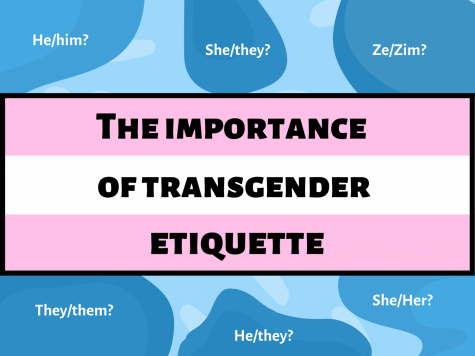Back to the Basics
Amidst conversation surrounding how women are treated in society, discussion has been sparked about the problematic ways girls tend to talk about and treat other girls.
“I feel like we have the tendency to judge people before even knowing them. This is not an explicit rule, but it definitely can stop you from getting to know people,” said Sienna Peacock, junior.
According to the website Science Daily, though men are known to be more aggressive physically, women often take a more covert approach that utilizes gossip and social exclusion.
Dr. Joyce Benenson is a professor at Emmanuel College and has researched this topic extensively. She has acknowledged that older research concludes that females are more competitive as a result of biology and evolution.
On the other hand, Dr. Lynn Margolies, psychologist and former faculty member at Harvard Medical School, likes to point out that female rivalry may also stem from a societal standard of women being taught to fear competition which results in indirect insults rather than straight-forward confrontation.
Though theories as to why may differ, female rivalry is prevalent in areas of society ranging from the workplace to motherhood to schools such as HHS.
While there are a variety of terms girls use to belittle one another, the term “basic” has surged in popularity in the last few years.
There are a variety of articles on the Internet that describes stuff a so-called basic girl would like. The lists often include, but are not restricted to, Starbucks, leggings, Instagram, kale, inspiring quotes, candles and aesthetically pleasing açaí bowls.
“I don’t think that the term basic is inherently bad, but it definitely does send a message that someone cannot think for themselves and follows the crowd. The irony, though, is that if someone does not fit the basic ideal they may be left out so really no one ends up winning,” said Sophie Goldenberg, senior.
A quick Google search will reveal that “basic” is usually used with a negative connotation. Corinne Lowmanstone, junior, struggles to understand why this is.
“I really like the song ‘Most Girls’ by Hailee Steinfeld because it reveals the negative meaning behind the phrase ‘you’re not like most girls’ and contradicts the idea that most girls are shallow. The line ‘most girls are smart and strong and beautiful’ is deeply true and something a lot of people have a tendency to forget,” Lowmanstone said.
The presence of female rivalry is clear, but Ms. Emily V. Gordon, an Oscar-nominated writer, feels that usually the criticism has to do with person making the statement instead of the person actually being criticised.
“For many of us, we look at other women and see, instead, a version of ourselves that is better, prettier, smarter, something more. We don’t see the other woman at all,” Ms. Gordon wrote in a New York Times editorial.
In a recent interview, democratic politician Mr. John Kerry suggested that President Mr. Donald Trump has “the insecurity of a teenage girl.” This comment has received a hefty amount of criticism.
“It is sickening to see someone stereotyping myself and my peers, so many of who are doing such amazing things, to a man who consistently dehumanizes women. If anything, it seems as if these comments would make someone more self-conscious,” said Chloe Perez, sophomore.
In regards to insecurity, Sam Reichel, junior, finds it ironic when girls talk badly about other girls while preaching female empowerment.
“I guessed that basic was a put down term made by people that aren’t into ‘popular’ things. I always thought that it was just meant to cover up insecurities about not being popular,” Reichel said.
Another person who sees this irony is Ms. Ellie Taylor, a comedian who works with the BBC show, The Mash Report. One of her segments, a brutally honest message from her on behalf of women to society, has been viewed tens of millions of times. Ms. Taylor argues that no matter what, a woman will always be criticised for, but not limited to, being “too thin,” “too fat,” “too pushy,” “too unambitious,” among other contradictory descriptions.
“I think that the video resonated with so many women because we’ve always been told we are too much of something. Even if a woman is perfectly ‘balanced’ in society’s eyes, she will be criticized for being too put-together. There’s no winning,” Peacock said.
With all this criticism like what Ms. Taylor is referring to from society, Peacock thinks female empowerment is crucial in order for progress to be made.
“By all means female empowerment isn’t about liking every single female you meet; it’s about not judging females for shallow things like how they look or present themselves. Even if you have a legitimate reason to dislike somebody, hating on them won’t make anything better. We have to begin treating one another respectfully before society will take us seriously,” Peacock said.
In regards to the issue of rape culture in society, the conversation rarely includes how women contribute to it. However, Dr. Gloria Cowan, a professor at California State University, San Bernardino who has researched subjects related to rape culture for decades, wrote in 1998, long before the #MeToo movement surfaced, about how anyone, regardless of gender, can and often do perpetuate rape culture by victim blaming.
An example of this was reported by the Telegraph in 2015. The first lady of Zimbabwe, Ms. Grace Mugabe, suggested that rape can be a woman’s fault depending on what she wore. Isabel Freeman, junior, finds this statement to be extremely troublesome.
“I dress the way I do for myself, not for others. My clothing is not an invitation. Rape is not something that can be asked for,” Freeman said.
On a smaller scale, Kennedy Williams, senior, believes combating female rivalry can start with very simple, but meaningful actions.
“Telling your close friends and people in general how much you are grateful for them goes a long way. However, I feel like genuine compliments from people I don’t know very well always mean a lot to me. These small and positive actions really do add up,” Williams said.




